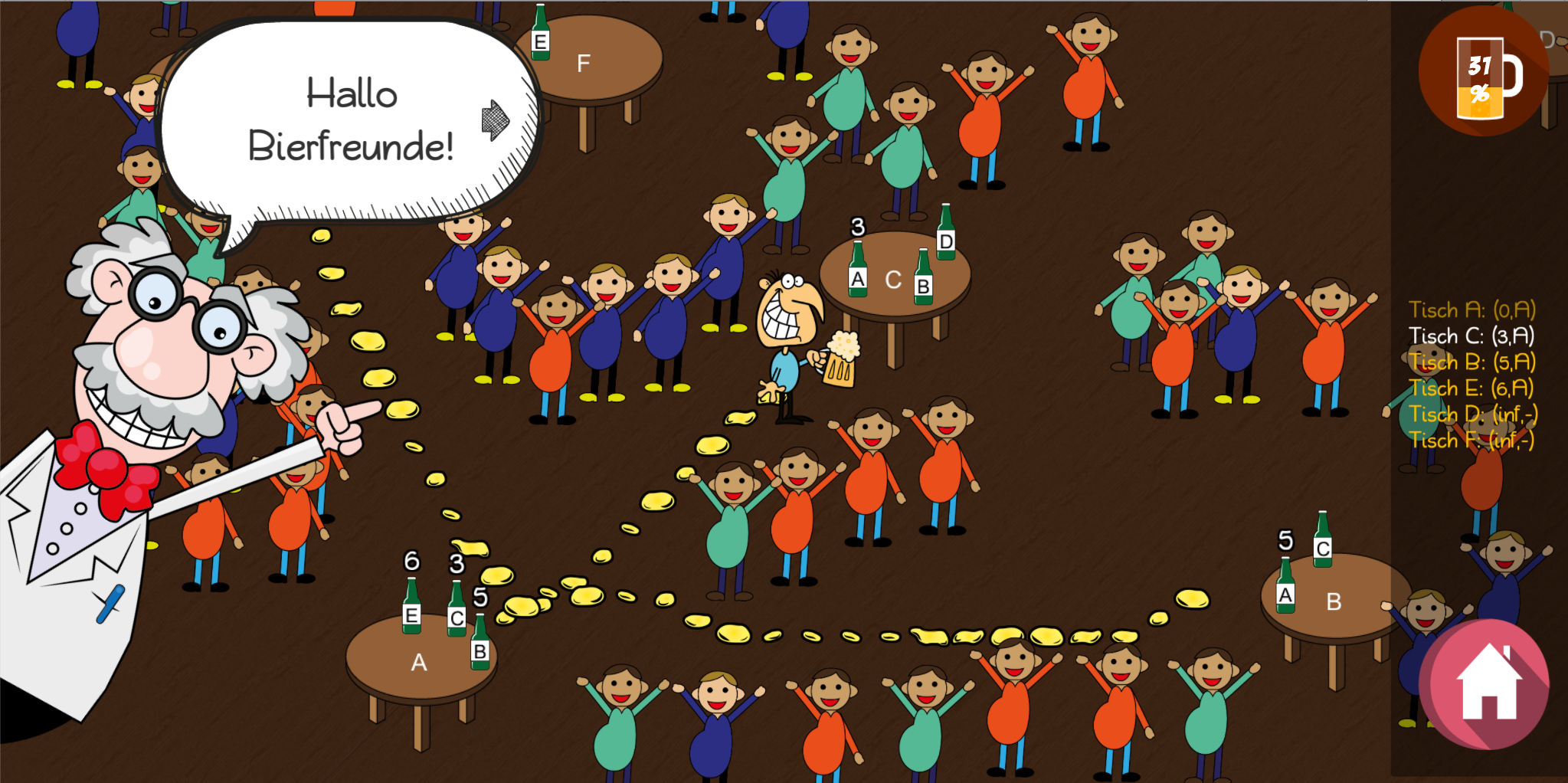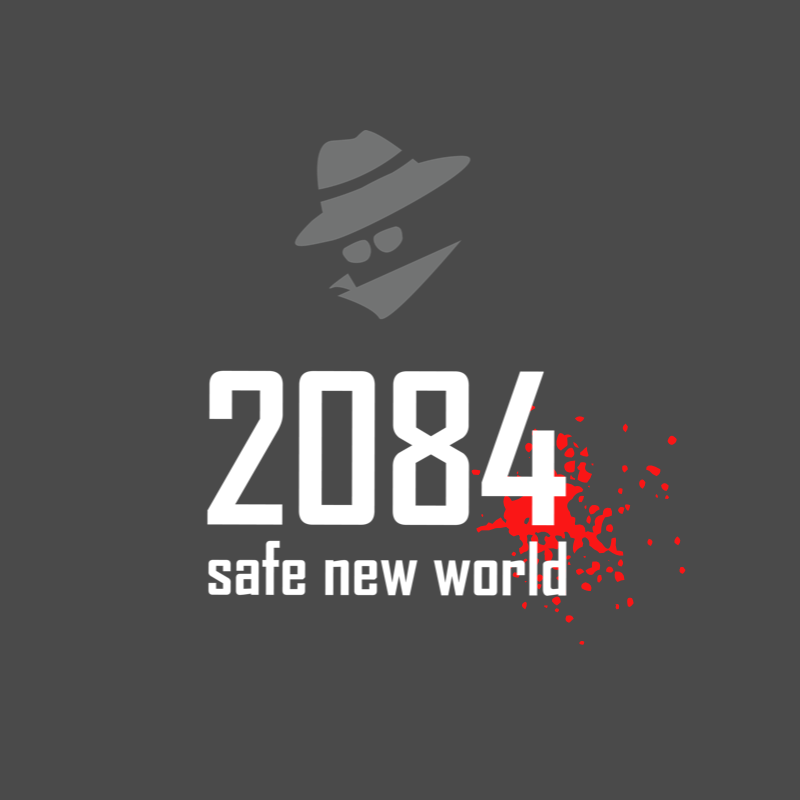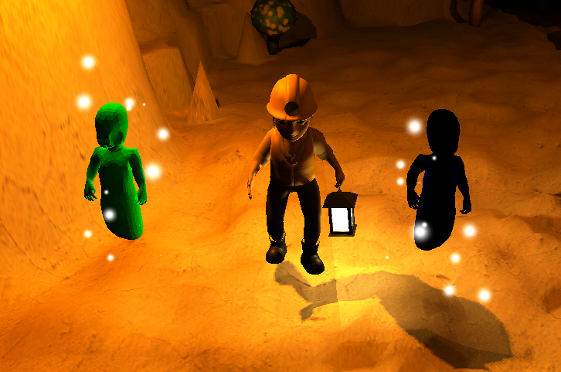Diese Seite wird nicht mehr aktualisiert.
(Stand März 2020)
Diese Seite wird nicht mehr aktualisiert.
(Stand März 2020)

Katja Rogers war dem Institut für Medieninformatik im November 2014 als wissenschaftliche Mitarbeiterin und Doktorandin beigetreten. Während ihres Informatik-Studiums an der Universität Ulm verbrachte sie ein Semester an der National Taiwan University. Ihre Masterarbeit fertigte sie als Gastwissenschaftlerin bei der SACHI Forschungsgruppe an der University of St Andrews an. In den Sommersemestern 2017 und 2018 absolvierte sie einen Forschungsaufenthalt bei der HCI Games Group an der University of Waterloo.
Im März promovierte Sie an der Universität Ulm zum Dr. rer. nat. und setzte Ihre Forschungskarriere zunächst in Kanada fort.
Anwendungsfächer/Projekte:
Seminare:
Vorlesung/Übungsbetrieb:
<br/>

Beer Routing – ist ein Individualprojekt im Bereich „Serious Games“: Professor Wahnsinn versucht die Abläufe in seiner Lieblingsbar zu verbessern. Deshalb bringt er dem Kellner den Dijkstra-Algorithmus näher, um die Bierverteilung zu optimieren. Zusätzlich klärt er ihn aber auch über verschiedenste Routingstrategien auf, um für alle Eventualitäten gerüstet zu sein.
Beteiligte Studenten: Jonas Kraus, Matthias Mak, Philipp Speidel, Fabian Widmann

2084. Der Terrorismus: Unter Kontrolle. Arbeit: Übernehmen Maschinen. Euro und Dollar: Zusammengebrochen. Einzige verbleibende Währung: Persönliche Daten.
Dies ist das Szenario des im Rahmen des UbiComp-Projekts entwickelten „Pervasive Games“. Ein Pervasive Game ist ein Spiel, in dem die Grenzen zwischen Realität und Spielwelt aufgebrochen werden. Wolltet ihr nicht immer schon einmal erleben, wie es sich anfühlt in der Fußgängerzone von seinen Mitmenschen beschattet zu werden? Dies ist nämlich eine der Möglichkeiten, in unserem Spiel an persönliche Daten zu kommen. Denn wenn jeder auf den anderen achtet, kann nichts Schlimmes mehr passieren. Welcome to the safe new world!
Beteiligte Studenten: Maximilian Baer, Thomas Dreja, Christian Hunger & Julian Winterfeldt
Ein Paper über dieses Projekt & die verbundenen Studien wurde bei der CHI Play Konferenz 2016 in Austin, Texas angenommen.

"Bool - Der kleine Minenarbeiter" ist ein im Rahmen des Anwendungsfaches "Serious Games" entstandenes 3D-Spiel, welches versucht einige Grundlagen der Bool'schen Algebra spielerisch zu vermitteln. Hierzu muss der Spieler mit Hilfe von Gattern und Wahrheitstabllen das Ausgangstor öffnen um in das nächste Level und schlussendlich aus der Mine zu gelangen.
Beteiligte Studenten: Maria Aufheimer, Imin Kurashvili, David Klein, Johannes Bonenberger
Das Spiel wurde beim Student Game Design Competiton der Konferenz CHI Play 2016 in Austin, Texas angenommen und durfte sich, vorgestellt von einem Studentenmitglied, dort vor der Jury beweisen.

We designed P.I.A.N.O., a piano learning system with interactive projection that facilitates a fast learning process. Note information in form of an enhanced piano roll notation is directly projected onto the instrument and allows mapping of notes to piano keys without prior sight-reading skills. Three learning modes support the natural learning process with live feedback and performance evaluation. P.I.A.N.O. supports faster learning, requires significantly less cognitive load, provides better user experience, and increases perceived musical quality compared to sheet music notation and non-projected piano roll notation.
| DOI: | 10.1145/3639701.3656302 |
| Datei: | /fileadmin/website_uni_ulm/iui.inst.100/1-hci/hci-paper/2024/AWallIEnjoy_IMX24_Funke.pdf |
| Datei: |
| DOI: | 10.1145/3356590.3356599 |
| DOI: | 10.1145/3311350.3347158 |
| Datei: |
| DOI: | 10.1145/3290605.3300318 |
| Datei: |
| DOI: | 10.1145/3290605.3300644 |
| DOI: | 10.1145/3341215.3356288 |
| DOI: | 10.1145/3341215.3356293 |
| DOI: | 10.1145/3173574.3173740 |
| DOI: | https://doi.org/10.1145/3170427.3188623 |
| DOI: | https://doi.org/10.1145/3173574.3173902 |
| DOI: | 10.1145/3130859.3133227 |
| ISBN: | 978-1-4503-5111-9 |
| DOI: | 10.1145/3027063.3053202 |
| Datei: |
| DOI: | 10.1007/978-981-10-2585-3_26 |
| ISBN: | 978-981-10-2585-3 |
| DOI: | 10.1007/978-3-319-51645-5_1 |
| Datei: | /fileadmin/website_uni_ulm/iui.inst.100/institut/verz-ma-ehedem/frommel/Publications/2084_-_CHI_PLAY_16_-_camera_ready.pdf |